The remarkable rise of Aldi, and the turbulent family story at its core
The budget store billionaires
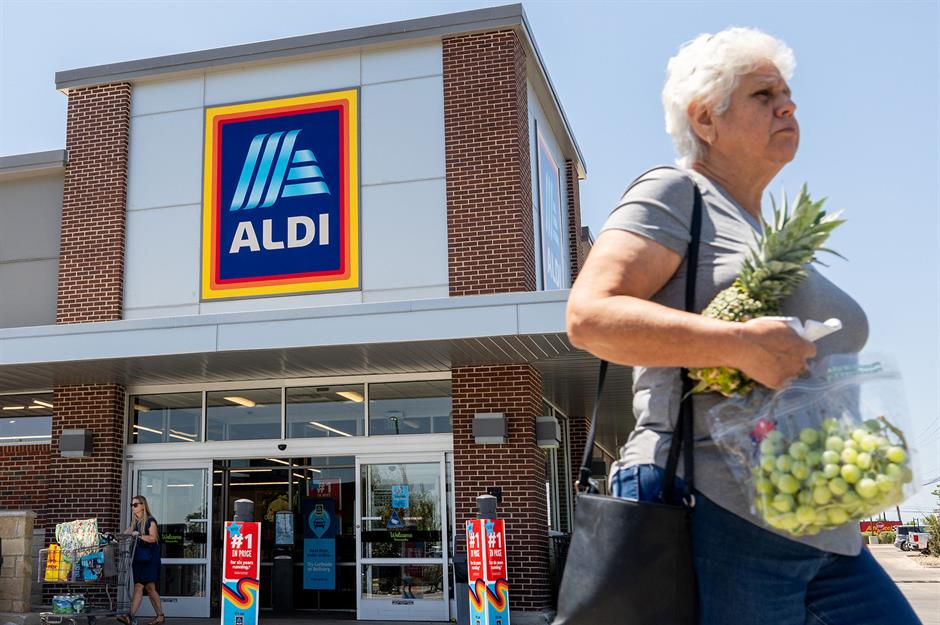
Supermarket Aldi has grown from a single store in a German city to over 12,000 stores worldwide today. But the story behind its meteoric rise might just surprise you...
From family feuds to a shocking kidnap, read on to discover the dramatic story of the family grocery business that conquered the world.
All dollar amounts in US dollars
Humble roots
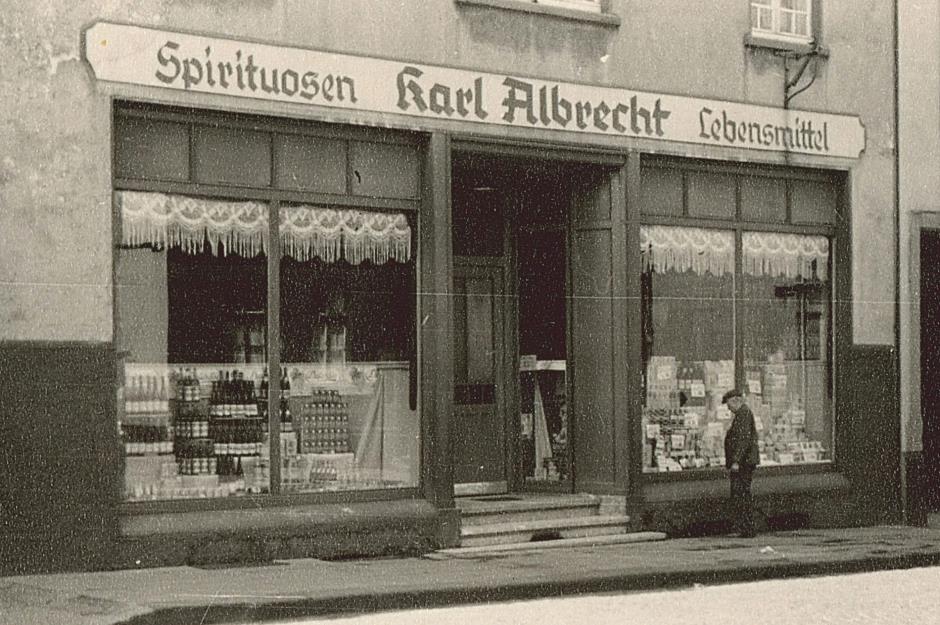
Aldi's rags-to-riches story begins in 1913 when Frau Anna Albrecht opened the Karl Albrecht Spirituosen und Lebensmittel grocery store in Schonnebeck, a low-income suburb of Essen, Germany.
Anna's two sons, Karl and Theo, both helped out in the store from an early age.
"The world's first discount store"
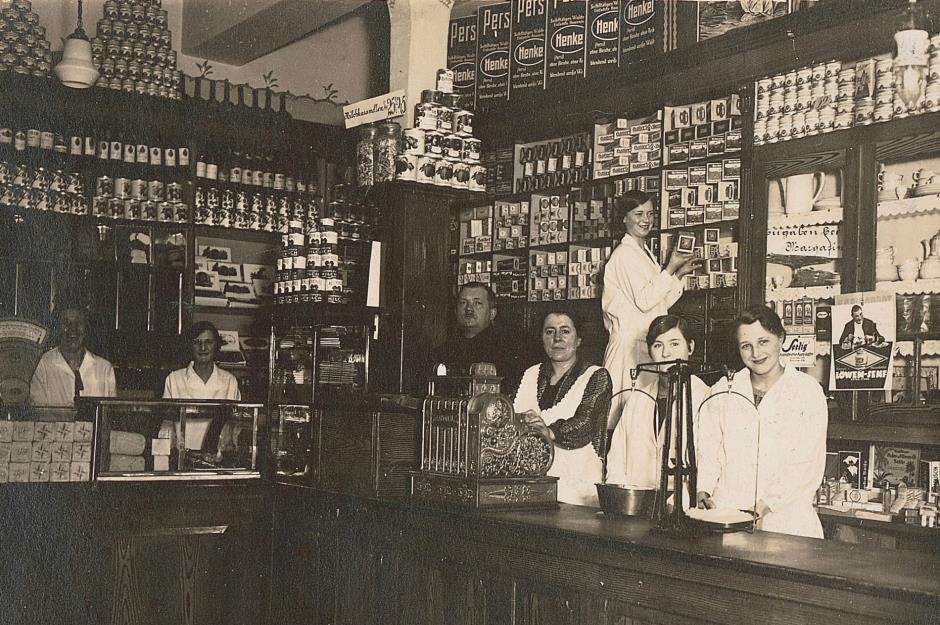
At the end of World War II, the brothers returned from the fighting to discover the family business had miraculously remained unscathed after years of air raids.
Karl and Theo took over their mother's business and transformed it into "the first discount store in the world." The brothers founded Albrecht KG in 1948 and opened four stores in the local area in the ensuing years.
Sponsored Content
Thrifty family with a savvy business plan
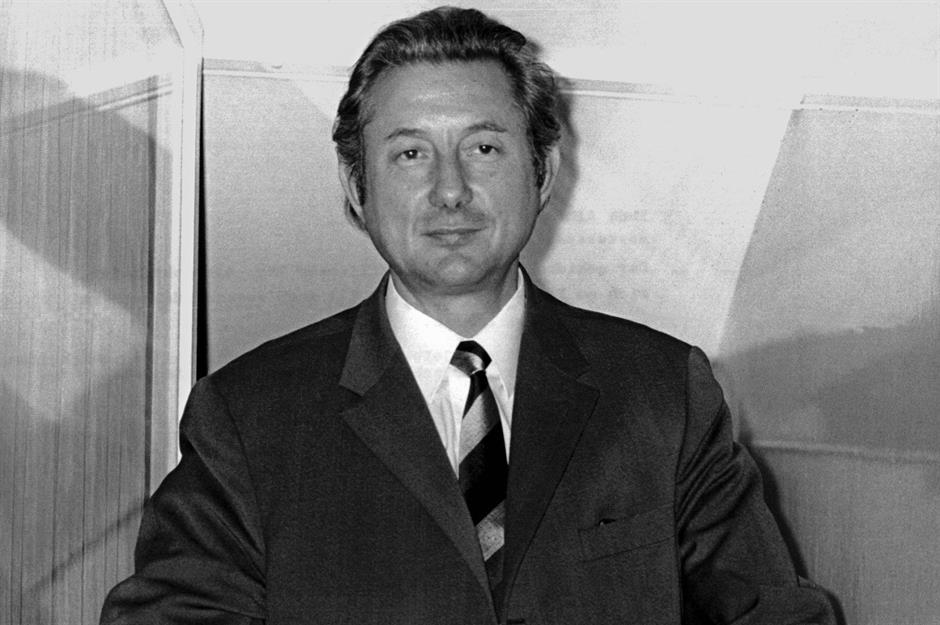
The family was noted for its thrifty ways. Obsessed with saving money, Theo (pictured) was said to recycle used pencil stubs, wear threadbare suits, and eschew any form of luxury even after he made his fortune.
However, the thrift-conscious brothers devised a simple yet successful business plan: they kept prices rock-bottom by only stocking non-perishable items and quickly removing slow-sellers from the shelves.
Growing popularity
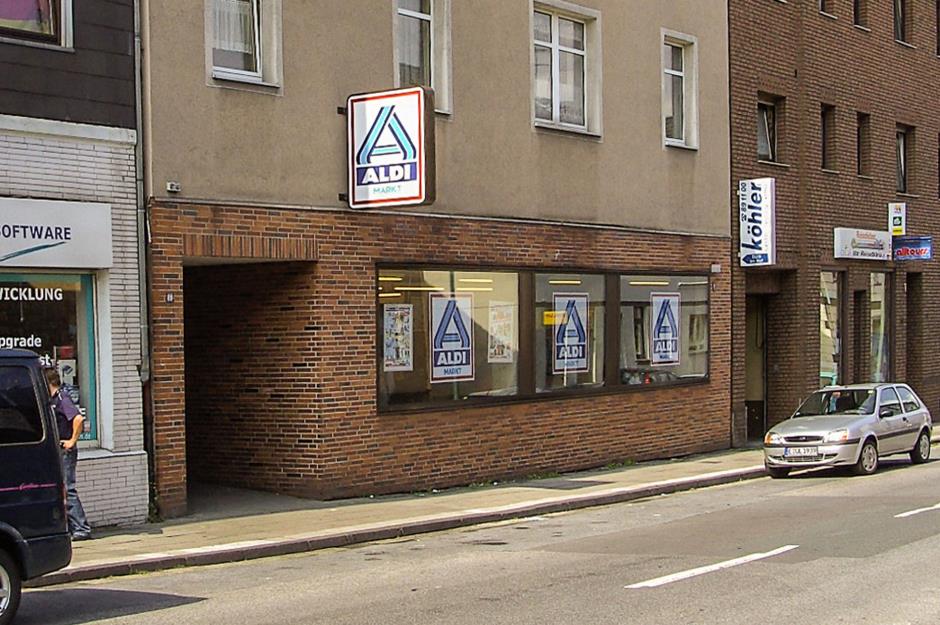
To avoid paying expensive overheads and to build their business slowly but surely, Theo and Karl Albrecht decided to concentrate on developing a chain of small supermarkets. Luckily, the compact stores' popularity spread through word of mouth as the Albrechts kept costs down by refusing to pay for advertising.
By 1950, they owned 13 stores in Germany's Ruhr Valley.
Germany's first self-service store
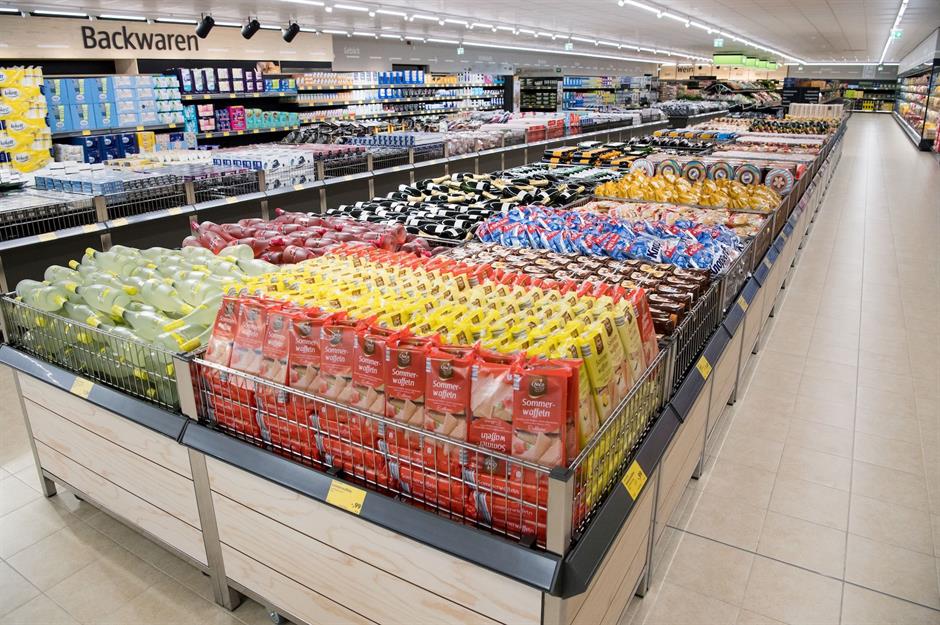
In 1954, keen to innovate, the entrepreneurial brothers made retail history again by opening Germany's first self-service store. It was a great success.
By 1960, Theo and Karl Albrecht owned 300 stores with an annual turnover of millions. But that same year, something happened that would change the business forever...
Sponsored Content
The great Aldi split
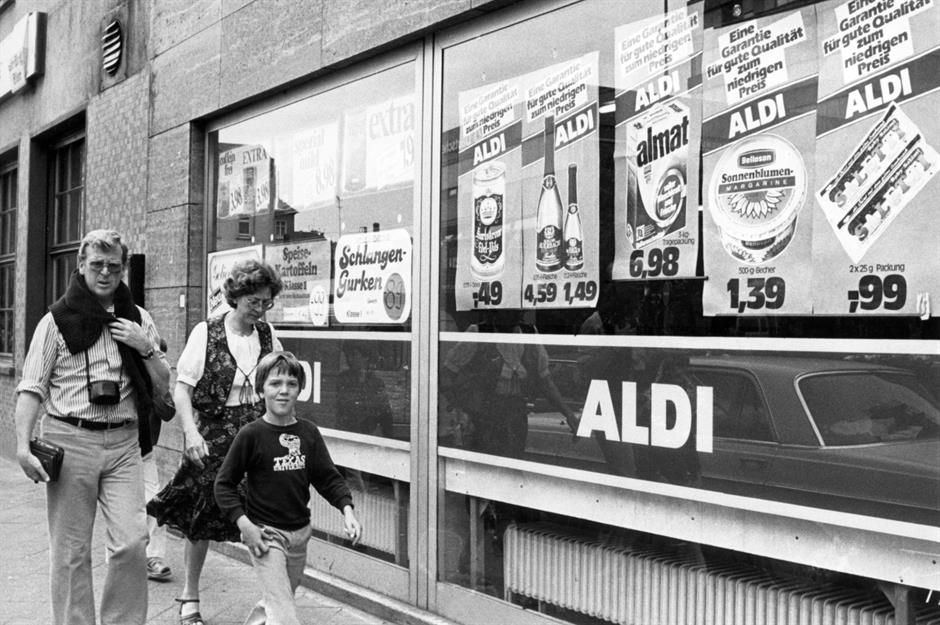
After more than a decade in business together, Theo and Karl's relationship changed forever when they disagreed about whether to sell tobacco products.
Tensions escalated, and the brothers decided to split the chain into two geographical groups: Theo took control of Albrecht-Diskont Nord, which sold cigarettes, while Karl became the CEO of Albrecht-Diskont Süd, which did not.
The new two Aldis
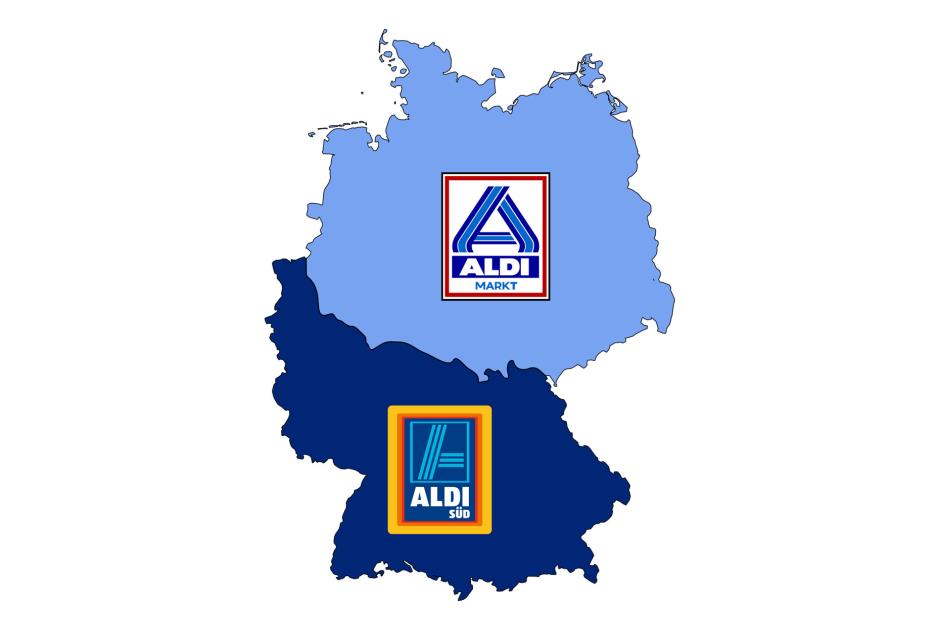
In 1962, the brothers, who were still working together despite their disagreement, decided to name the groups Aldi Nord and Aldi Süd, taken from the first two letters of Albrecht and Diskont. Aldi Nord took over stores in the north of Germany while Aldi Süd became responsible for stores in the south, with the border between the two becoming known as the "Aldi Equator".
In 1966, the two businesses became financially and legally separate. By this time, there were 200 Aldi Süd stores in Germany.
International expansion
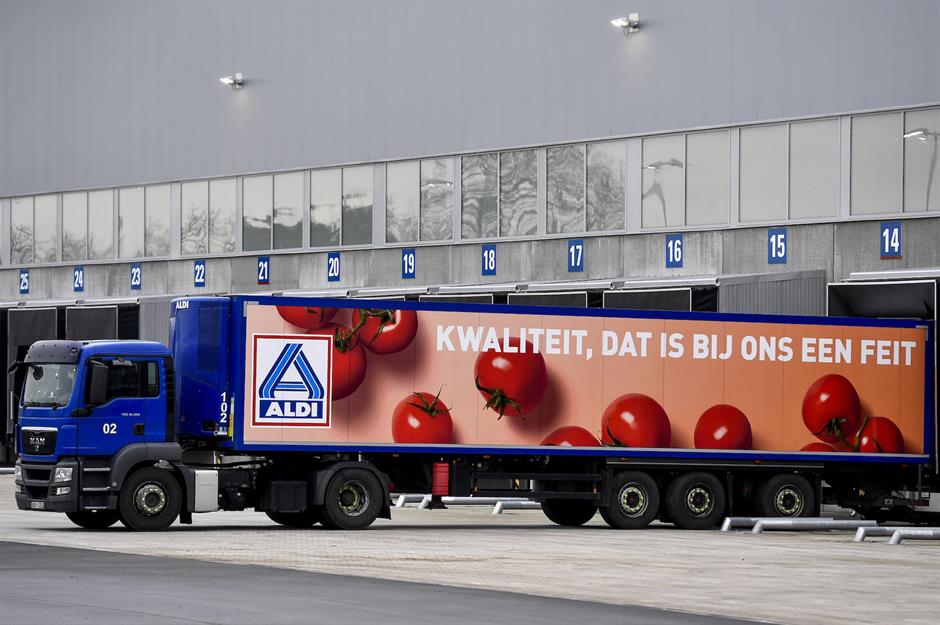
The Aldi group made its first forays into the international market in 1967 when Aldi Süd took over Hofer, an Austrian grocery chain. Aldi Nord joined in when it expanded to Belgium in 1973.
Sponsored Content
Kidnapping of Theo Albrecht

The Aldi story took a dramatic turn in 1971 when Theo Albrecht (centre) was kidnapped and held at gunpoint by a disgruntled lawyer called Heinz-Joachim Ollenburg and his accomplice Paul Kro.
A ransom of DM7 million, the equivalent of over £17 million ($22m) in today's money, was paid and Albrecht was released after 17 days in captivity. Theo Albrecht later tried to claim the ransom as a tax-deductible expense.
Reclusive CEOs
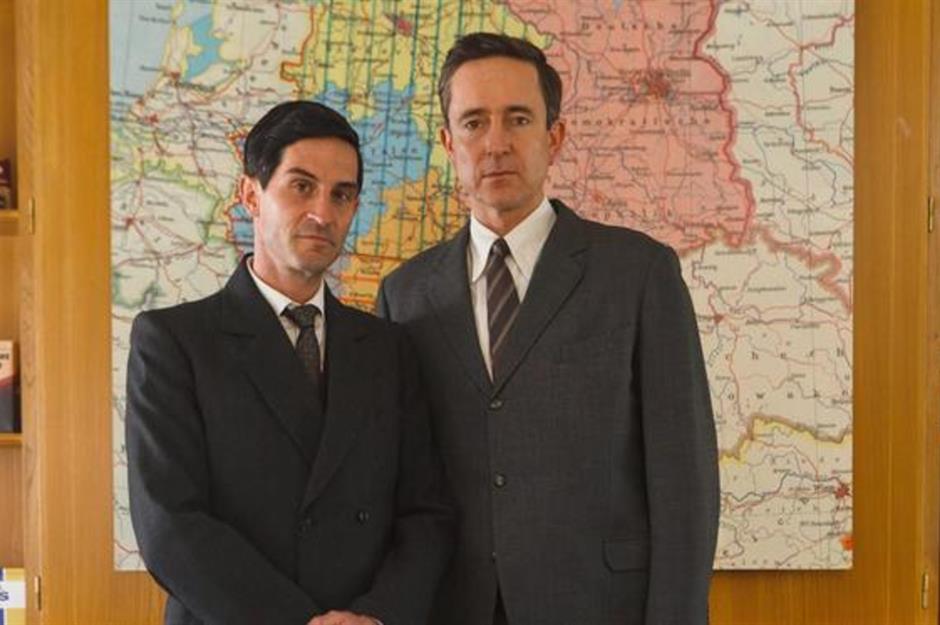
Possibly as a consequence of the kidnap, the Albrechts became notorious for being extremely secretive about their private lives with Forbes dubbing Theo "more reclusive than a yeti". The last photo published of limelight-shunning Theo Albrecht alone dates back to 1971, a day after he was released by his kidnappers, and the last picture of the brothers together was published in 1987. Theo reportedly began travelling to work in an armoured car, purposefully taking a different route each day.
The brothers' relationship was captured by actors Arnd Klawitter (Theo Albrecht) and Christoph Bach (Karl Albrecht) in the docu-drama movie Die Aldi-Brüder in 2018 (pictured).
Founders pass on the reins
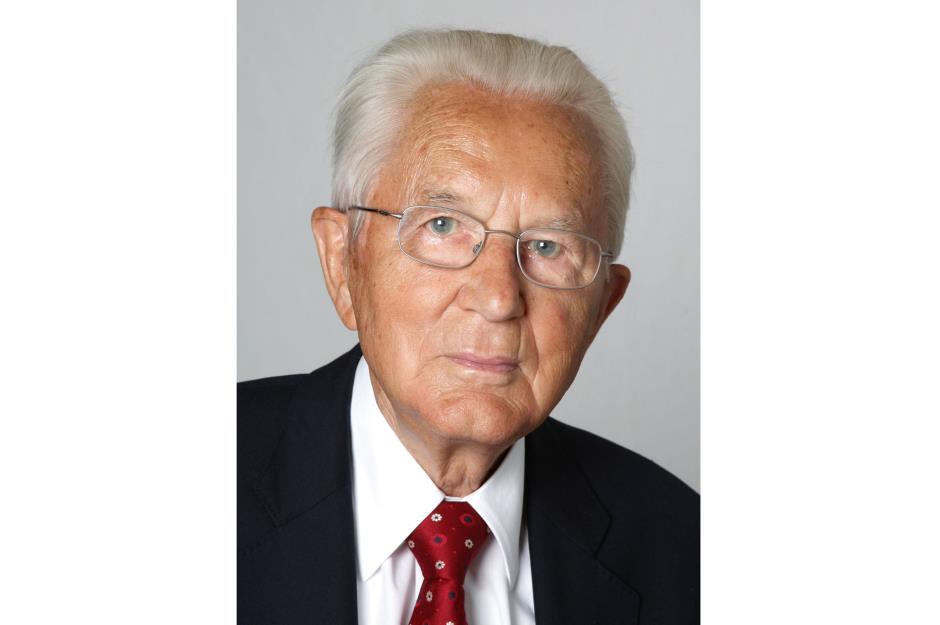
In 2010, Theo Albrecht died a very wealthy man at the age of 88. The former Aldi Nord CEO was ranked by Forbes as the 31st richest person in the world that year, with a net worth of $16.7 billion, the equivalent of over $24 billion (£18.5bn) in today's money.
The co-founder and his brother retired as CEOs in 1993 and private family foundations now control the supermarket empire. When Karl Albrecht (pictured) died in 2014 at the age of 94, the former Aldi Süd CEO was the richest man in Germany with a personal wealth of $25 billion, or around $33.2 billion (£25.6bn) in 2024 money.
Sponsored Content
The shocking will of the Aldi 'grande dame'
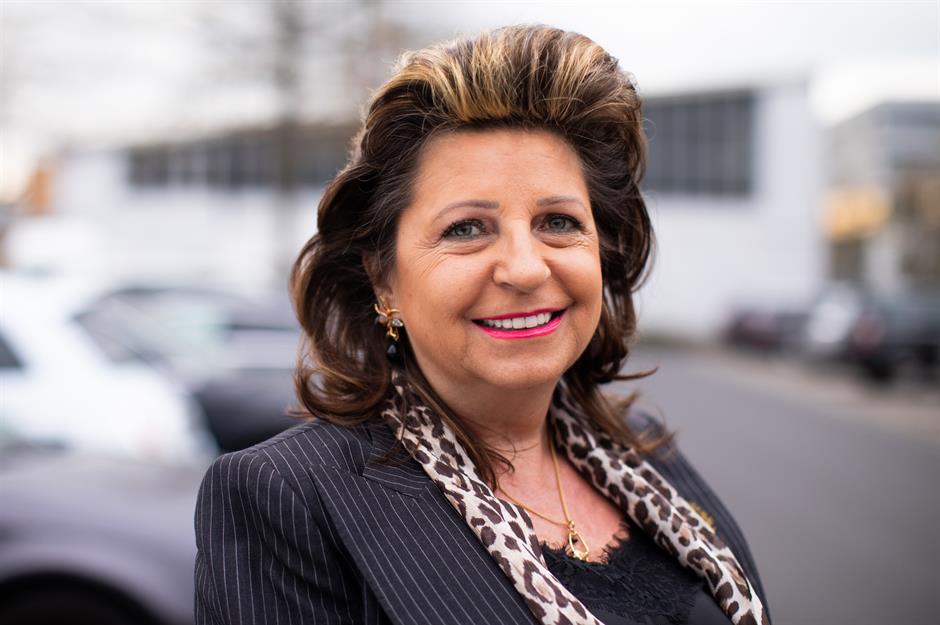
But behind the scenes of the Aldi empire, another family feud was brewing. The will of Theo Albrecht's widow sparked a family rift when she died in November 2018. The so-called Aldi "grande dame" Cäcilie Albrecht settled a score with the five children of her late son and his widow Babette (pictured), accusing them of lavish spending that was out of line with the company's frugal philosophy.
Cäcilie excluded her son's children and her daughter-in-law from any future roles in the firm. Babette and her children have denied any wrongdoing.
US launch
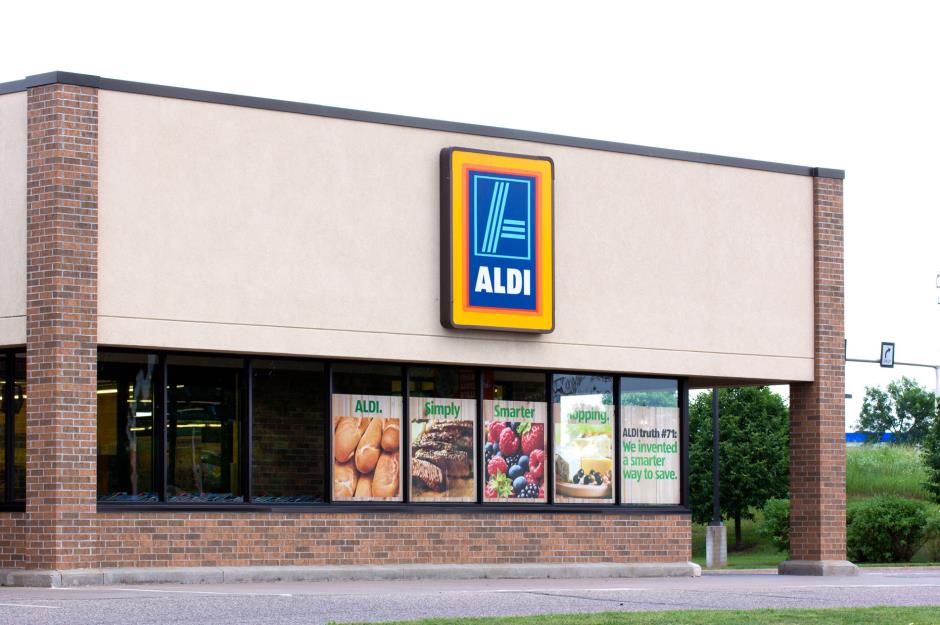
Ongoing tensions among the Albrechts have not hindered Aldi's expansion. The supermarket chain first arrived in the US in 1976, opening a store in Iowa. Headquartered in Illinois the company has nearly doubled in size in America over the past decade, with more than 2,300 stores currently open thanks to a $5 billion (£3.9bn) five-year US strategy launched in 2017.
Aldi announced in March this year that it hopes to add a further 800 American stores to its roster by 2028.
Trader Joe's acquisition
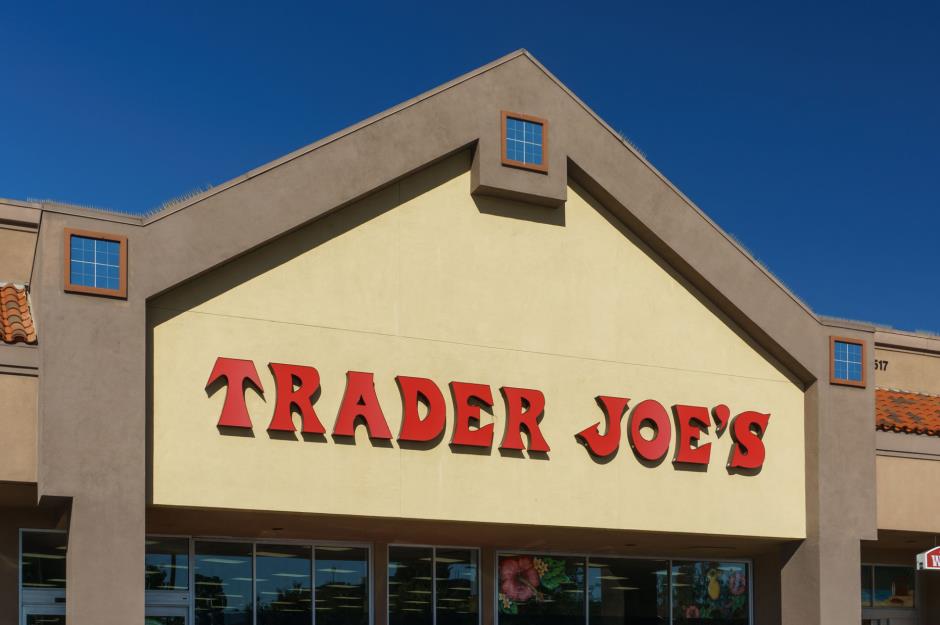
However, it's not just Aldi Süd that has a presence in America. In 1979, a trust headed by Aldi Nord's Theo Albrecht bought discount chain Trader Joe's, which now operates around 580 stores in the US.
Meanwhile, in 2023, Aldi Süd struck a deal to acquire the Winn-Dixie and Harveys supermarket chains. Some of the stores will be converted into Aldi outlets in the future.
Sponsored Content
Fast-paced expansion in Germany
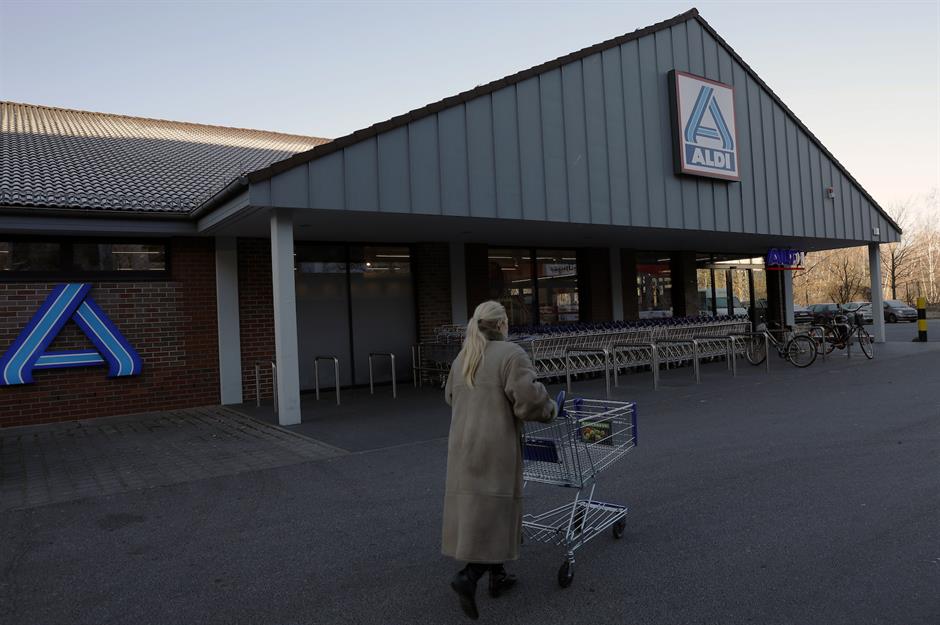
After the Iron Curtain fell, the Aldi group enjoyed a massive fast-paced expansion in reunified Germany.
Aldi Nord now operates around 2,200 stores in the northern part of the country, while Aldi Süd has around 2,000 stores across the south of Germany.
UK launch
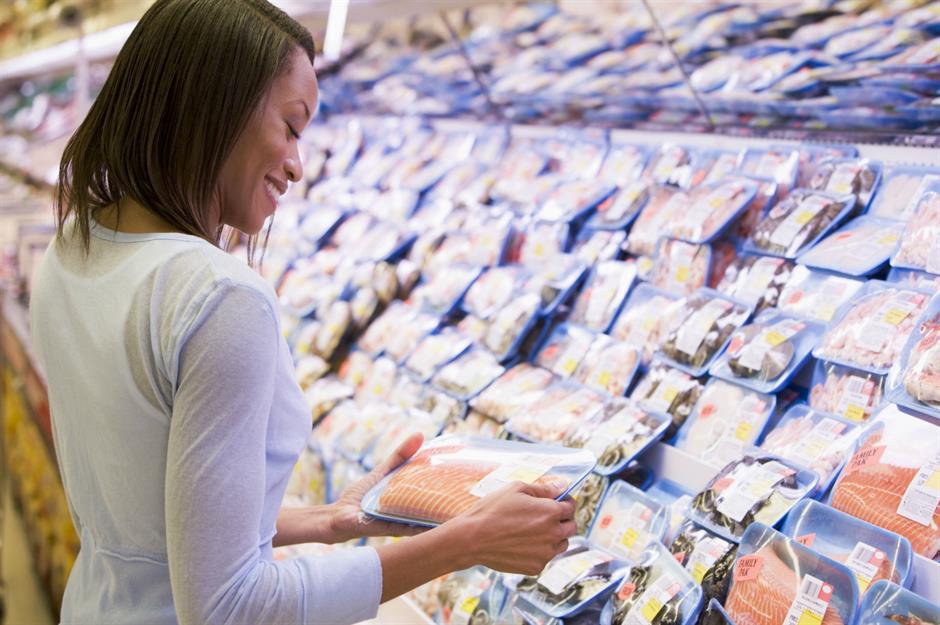
The group expanded to the UK in 1990, opening its first supermarket branch in Birmingham. In 2023, the company opened its 1,000th UK store and unveiled plans to open another 500 outlets in the future.
Aldi is now one of the fastest-growing supermarket chains in the nation and is the fourth largest in terms of market share.
Unstoppable international expansion
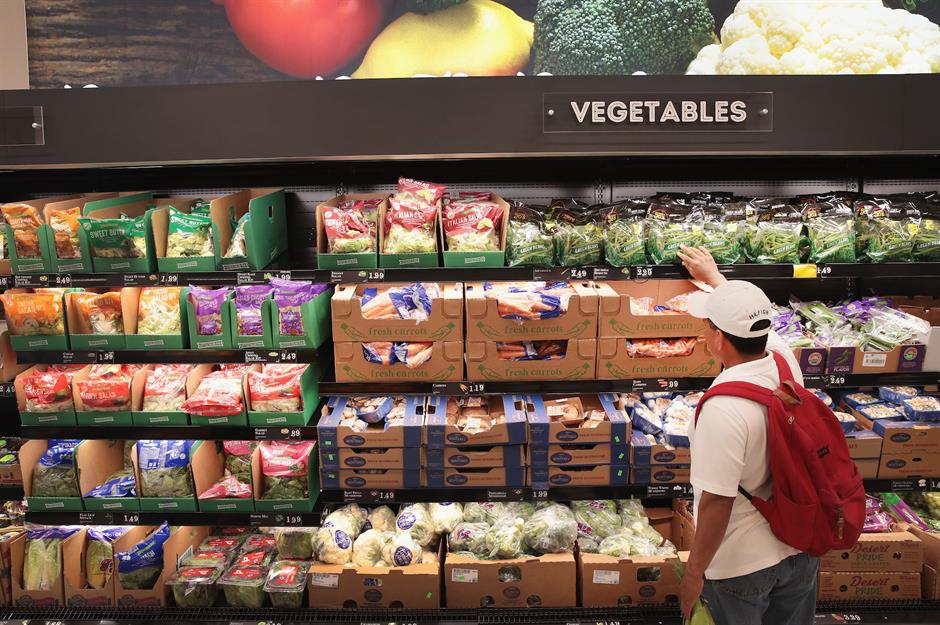
By 1991, the Aldi group operated stores in eight European countries and the US.
Over the next three decades, the group expanded to Ireland, Australia, Spain, Slovenia, Switzerland, Portugal, Hungary, and Poland.
Sponsored Content
Aldi vs Lidl in France
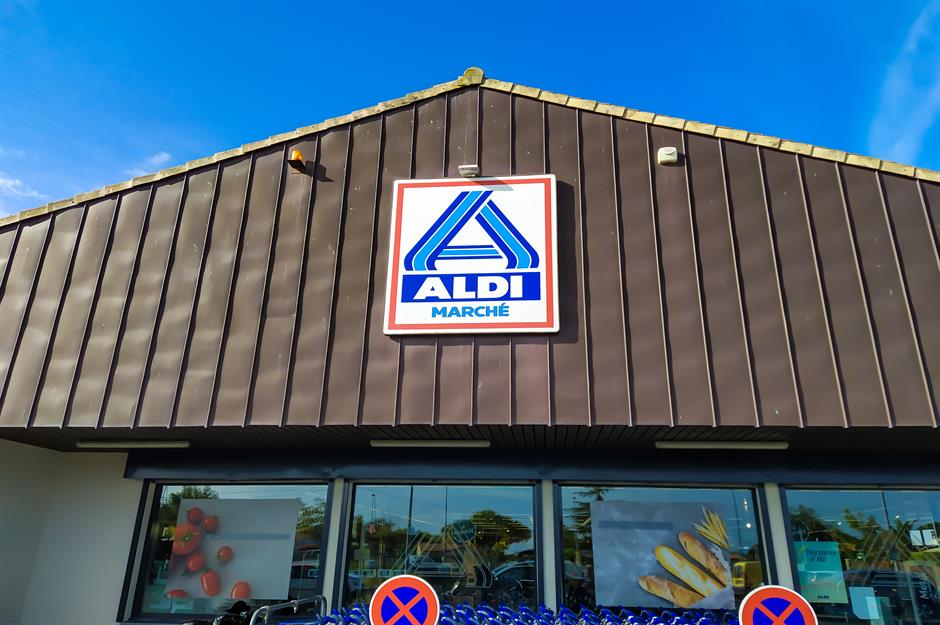
Operated by Aldi Nord, the supermarket chain landed in Croix, France in 1988 and had 1,300 locations around the country by 2021. More than 75% of the food items sold at these stores come from France, giving the international business a decidedly local flavour.
Aldi is reportedly keen to catch up to rival Lidl in the country. There are more than 1,500 French Lidl stores and its monthly market share is more than double that of Aldi, according to Statista data for October 2023.
Reaching Italy
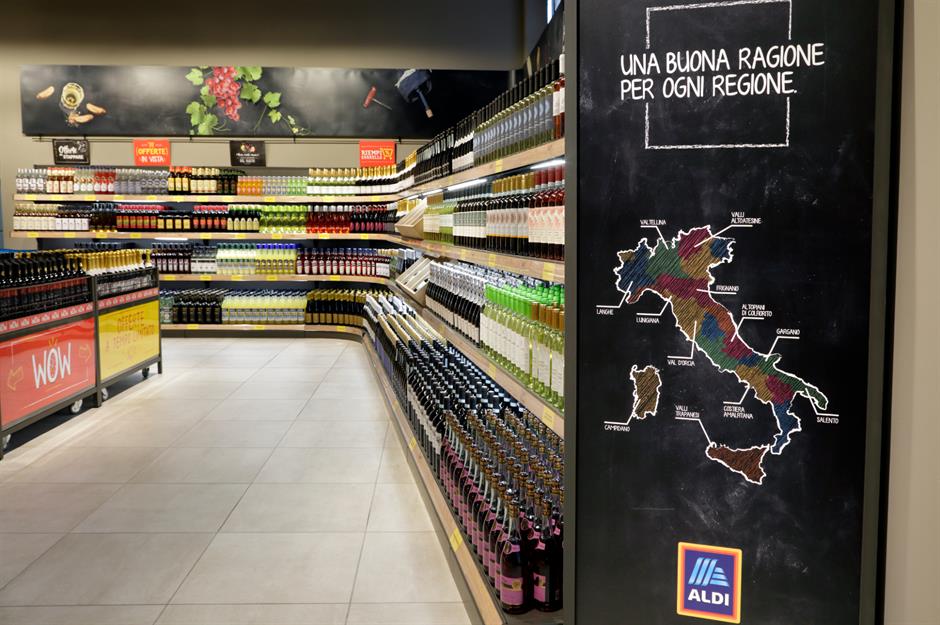
In March 2018, Aldi opened its first 10 locations in northern Italy, with around 40 more opening over the course of the year. Three-quarters of the products, including regional specialities, were locally sourced. Unlike in other countries, each store also had an all-Italian wine cellar.
By pure coincidence, Aldi is a fairly common surname in Italy. To celebrate the launch the company sought out Italians with the name Aldi to star in promotional videos in which they cooked Italian food using Aldi products.
Aldi's Grexit

Aldi's expansion hasn't all been smooth sailing. In 2010, Aldi Süd pulled out of Greece after just two years having invested an estimated €800 million, the equivalent of over $1.2 billion (£926m) in today's money.
Reports from Greek media suggested that the retailer could not compete with fellow German budget chain Lidl, which had an established presence in the country.
Sponsored Content
Expansion to China
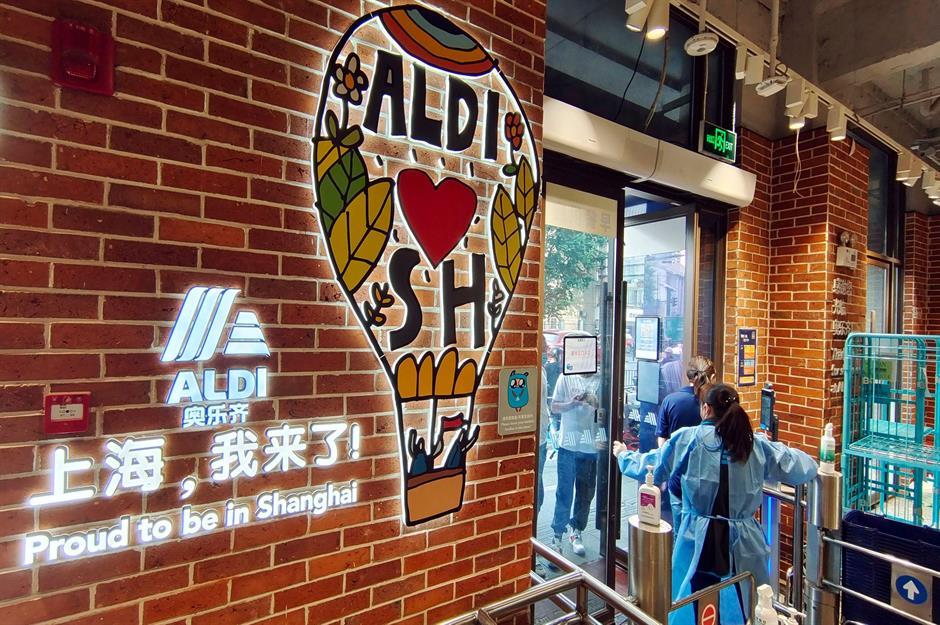
One of Aldi's most recent achievements was the 2019 opening of its first stores in China. The Shanghai supermarkets not only look different from their European counterparts, with a more upmarket aesthetic, but also offer a large fresh fish counter in addition to the usual Aldi products imported from Europe.
Today Aldi has 53 stores in Shanghai, with plans to increase that number to 100 in the coming years.
What's the secret?
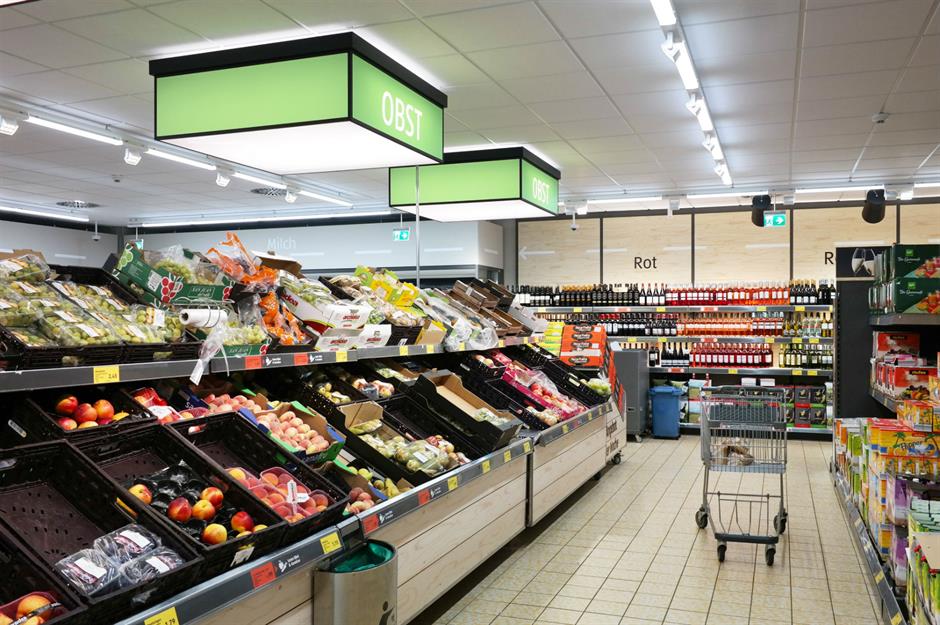
So how exactly does Aldi keep its prices so low all over the world? One trick is to keep a much smaller selection of items on the shelves, offering just 900 core products, which means the company has smaller stores and warehouses, keeping rent prices and staff costs super-low.
Plus, the store doesn't stock many big brand names, making more room on the shelves for its cut-price own-brand items. The chain also has a long-established policy of offering weekly special offers on more expensive items including electronics, tools, and homeware.
New initiatives
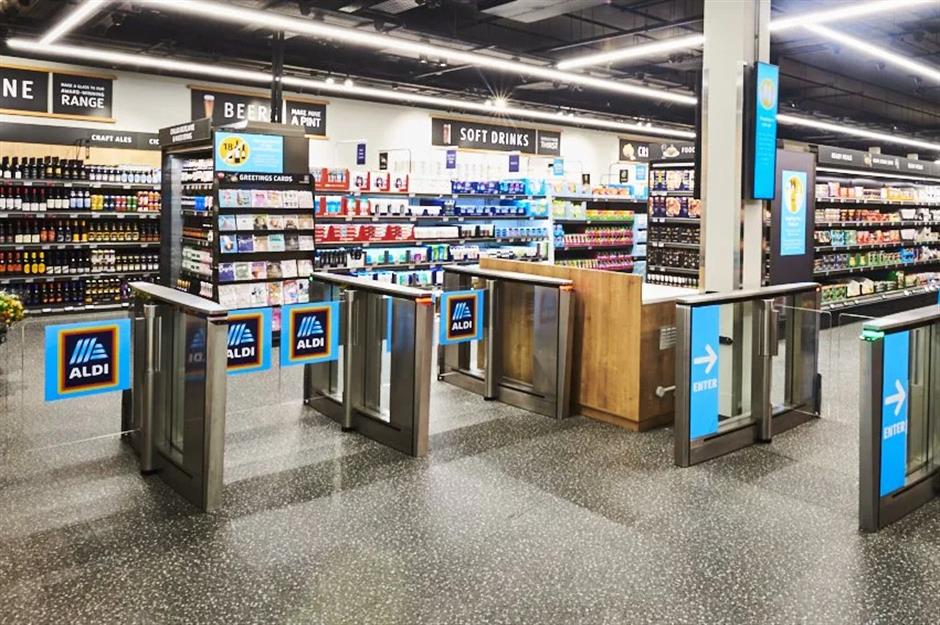
In addition to its international expansion, Aldi has also been focusing on a range of new initiatives. These include the launch of its first click-and-collect and home delivery services, schemes largely born out of necessity during the COVID-19 pandemic, and its inaugural checkout-free store in Greenwich, London (pictured).
The supermarket has also deployed checkout-free technology in stores in Chicago, making it the first major US grocery chain to do so. It followed this innovation by opening its first eco store with a zero-waste section in London in 2022.
Sponsored Content
Global domination
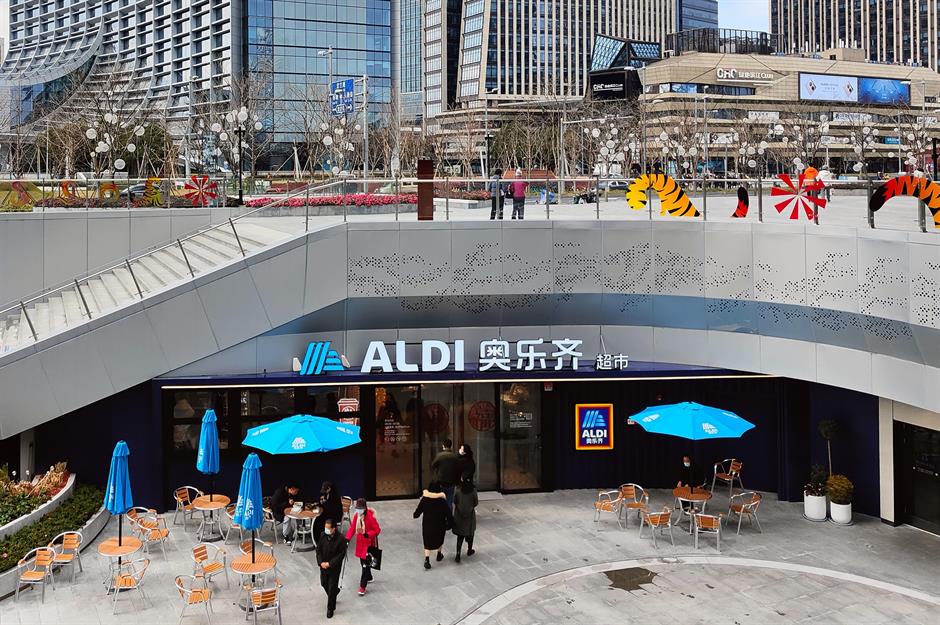
The chain has come a long way from its humble beginnings in Essen, Germany. Aldi is now a global player, operating more than 12,000 stores worldwide. But how do Aldi Süd and Aldi Nord compare?
Aldi Süd worldwide
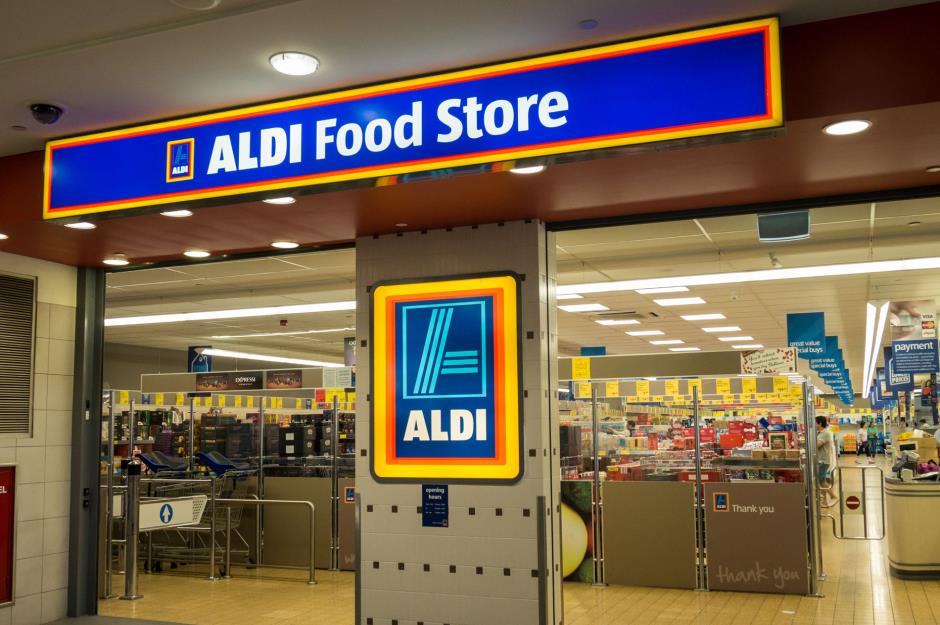
Aldi Süd is the bigger of the two groups with more than 7,000 stores and reported net sales of €76 billion ($82bn/£64bn) in 2022. In addition to operating the stores in China, Aldi Süd is now responsible for the Aldi stores in Southern Germany, the UK, Ireland, Australia, Switzerland, Hungary, and the US, as well as the Hofer chain in Austria and Slovenia.
Aldi Nord worldwide
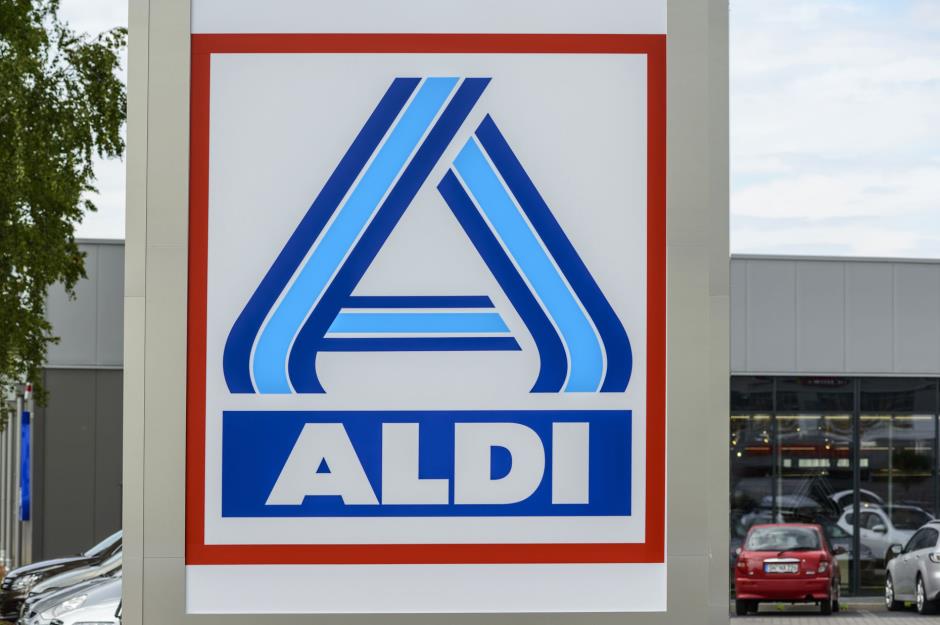
Meanwhile, Aldi Nord looks after Aldi stores in Northern Germany, the Netherlands, France, Spain, Denmark, Poland, Portugal, Belgium and Luxembourg. It also operates Trader Joe's in the US.
Now discover 10 problems tech giant Apple is facing today
Sponsored Content
Comments
Be the first to comment
Do you want to comment on this article? You need to be signed in for this feature